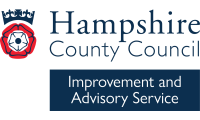SEN Support Toolkit
5. Understanding need

|
Schools have a responsibility to support all children and young people (CYP). Mainstream schools “must use their best endeavours to make sure that a child with SEN gets the support they need – this means doing everything they can to meet CYP’s SEN” (SEND Code of Practice 2015 ). The Hampshire Principles of Inclusion can be found within section 1.3 of the SEN Support Guidance SEN Support Guidance . All teachers are teachers of CYP with SEND. The basis of all inclusion is a universal offer of high-quality, inclusive teaching. Further guidance on what this looks like can be found in The Inclusive Classroom: High Quality Teaching in every setting | Whole School SEND If a CYP experiences difficulties when receiving consistently high-quality teaching then there may be an underlying need, however, schools should always consider if, how and to what extent teaching, adult behaviours, provision or environment could be adapted to better meet the needs of the CYP. Understanding the CYP and their specific needs is key to being able to support them to succeed at school. Developing a detailed evidence base to identify a child’s strengths and difficulties can help to determine what strategies might be most helpful in providing for their needs. An evidence base also allows you to objectively review the progress that the CYP is making, and whether any interventions or changes are having the desired impact. A lack of progress and / or low attainment may indicate a CYP has SEND but this is not necessarily the case, as rates of learning, personal development and maturity are not linear and this must be taken into account when making comparisons. Schools should be looking to gather a detailed understanding of a child’s needs based on a staged approach which includes the following process;
The process of identifying a child’s strengths and difficulties. Schools can draw on a wide range of assessment approaches. These might include standardised; psychometric; dynamic; criterion-referenced and observational approaches. At times, schools may consider involving professionals, who bring additional expertise (e.g. EPs, SaLTs, Specialist teachers), while routine discussion with parents/ carers can lead to a more rounded understanding of a child’s context.
The process of determining and agreeing next steps. Schools identify an evidence-informed intervention and should confirm who will deliver this, how often, in what context (e.g. whole class, small group or 1:1), with what intended learning objectives and for how long. Reflecting this in a plan (an individual learning/ education/ behaviour plan or similar) confirms these arrangements and provides an opportunity for schools to discuss these with parents/ carers and children (as appropriate).
The process of delivering the intervention. Best outcomes will be achieved where an intervention is delivered in line with its evidence base. If the intervention indicates weekly, small group for 30 mins over a 10-week period, then wherever possible this should be achieved.
The process of reviewing a child’s progress. At the end of an agreed period of intervention, a further process of assessment should be completed to understand the child’s response to intervention. This is an opportunity to review the plan, celebrate achievements, discuss progress with parents/ carers and consider and agree next steps. A range of useful links are included in the table below: |
|
Things to ConsiderDo your assessments provide an understanding of a child's strengths and difficulties? Is there a clear understanding of why a child is underachieving or not making expected progress? Have external professionals been involved over time, and their assessments considered in a school's approach? Are the interventions that have been used evidence based? Has the integrity of the intervention been maintained? Have parents / carers been involved and their views collected at different stages? Has a plan been developed, implemented and reviewed that responds to these issues? Where a child has not responded well to intervention is there evidence that reviews have fed into "other" interventions being delivered? Do you have questions or queries?Contact the SEN Support Line using this link. Quick Links
Social, Emotional & Mental Health
|
||||
|
Document |
|
Owner |
|
Link |
|
|
|
SEN Support Guidance |
|
Hampshire County Council |
|
|
||
|
Teacher Handbook – Whole School SEND |
|
NASEN |
|
|||
|
Special Educational Needs in mainstream Schools Guidance Report |
|
Education Endowment Foundation |
|
Special Educational Needs in Mainstream Schools | EEF (educationendowmentfoundation.org.uk) | ||
|
What works – Whole School SEND |
|
NASEN |
|
|
||
|
SEN Support and the Graduated Approach |
|
NASEN |
|
|||
|
Costed Provision Map Template |
|
NASEN |
|
|
||
